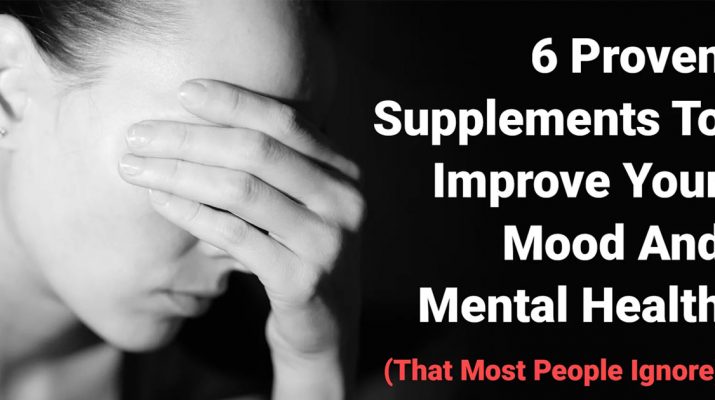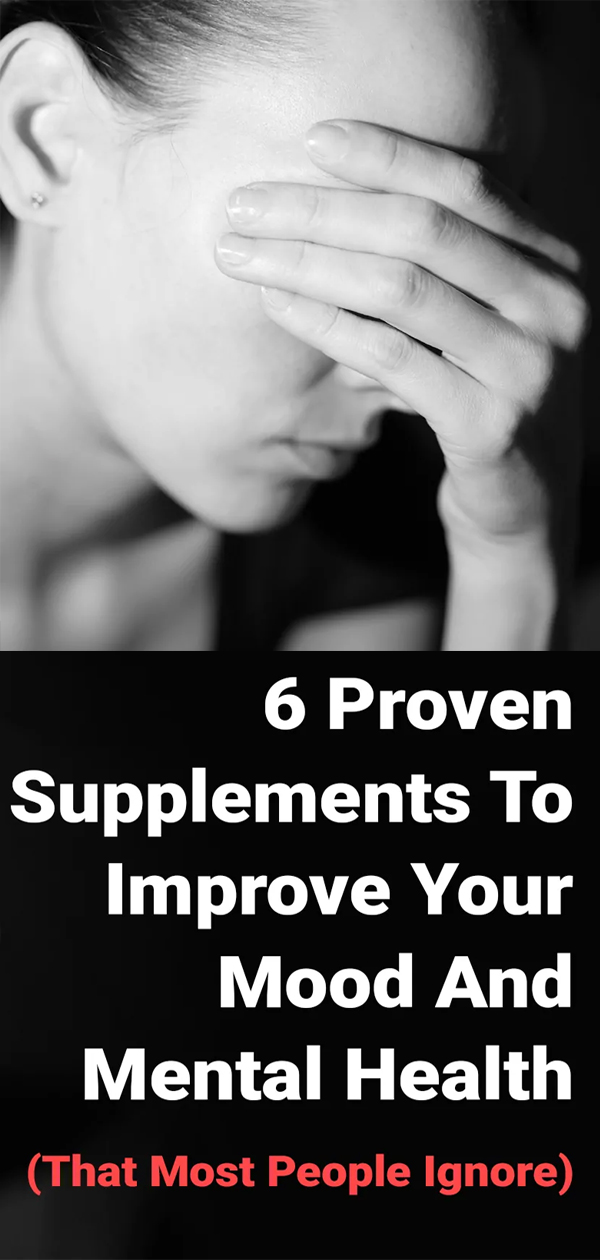How can you know whether or not you’re doing enough for your mental health? First, did you know that around 40 percent of Americans take some supplement and undergo some “alternative” treatment? Harvard University researchers estimate that this percentage rises to about 50 percent among those diagnosed with a mental health condition. In other words, many of us need some boosts for our brain and mental health.
Additionally, not only are more people taking supplements, but more medical professionals are attesting to the benefits of doing so. You can easily find evidence to suggest that some nutrients even boost brainpower! In short, if you’re not using supplementation for brain benefits, you may want to reconsider.
Here Are Six Supplements That Improve Your Mood And Mental Health
(Note: Information provided in this article is intended for entertainment purposes only. If you have questions about any potential treatment, please consult with your healthcare provider.)
-
Gingko Biloba
Gingko Biloba goes back some 270 million years. It is so old, in fact, that some people refer to it as a “living fossil.” Yes, gingko could very well have been sprouting when the dinosaurs were roaming about! (Wonder if any T-Rex munched on a gingko tree … hmm …)
Brain Benefits: Researchers consider gingko an effective supplement for cognition. First, it boosts brain circulation (blood flow). Also, gingko contains great memory-boosting properties as well as fantastic brain protection benefits. In part, this is because of its high concentration of antioxidants. Europeans widely use gingko as a treatment for, or in the prevention of, dementia.
What researchers say: A study published in the Journal of the American Medical Association concluded that gingko is “safe … and possibly effective in stabilizing and improving cognitive (functioning.)”
-
Valerian Root
Valerian is an herbal supplement extracted from the root of a pinkish flower species. There are thought to be over 400 variations of valerian extract. Its prevalence has led to its cultivation and processing across three continents: North America, Europe, and Asia.
Brain Benefits: Valerian root appears to act as a natural relaxer (sedative) on the brain and nervous system. For this reason, it treats anxiety, psychological stress, and sleep disturbances such as insomnia. Some believe it also acts on the brain’s GABA receptors, which help calm the nervous system.
What researchers say: In one particularly significant study, researchers found that valerian more effectively treats anxiety than Valium!
-
Omega-3 Fatty Acids
Omega-3s are a type of fatty acid (along with omega-6 and omega-9) found in foods like avocados, olive oil, and salmon. Unlike most dietary fats, omega-3s contain remarkable health-promoting traits. Since the body cannot produce omega-3s, we must acquire them through our diet or via supplements. Many scientists recommend 2000 milligrams (mg) as the optimal daily intake of omega-3s for brain and mental health.
Brain Benefits: Omega-3 fatty acids may just be the most powerful health-promoting supplement in existence. Given that our brain contains nearly 60 percent fat, you’ll find it no surprise that omega-3s pack some serious mental health benefits as well. Physiologically, the acids in omega-3s (DHA and EPA) regulate inflammation. They also maintain nerve cell function and structure. Finally, they ensure proper communication between neurons. They are also very healthy for your heart.
What researchers say: A study published in the journal PLOS One linked higher levels of DHA with better reading comprehension, recall, and vocabulary in school-aged children.
-
Magnesium
Magnesium involves itself in more than 300 important biochemical reactions in the human body. Along with omega-3s, you should consider taking magnesium supplements every day, especially considering that over 80 percent of Americans do not consume enough of this nutrient.
Brain Benefits: Our bodies need magnesium for optimal functioning between nerve cells in the brain. Getting the recommended daily intake (RDI) of magnesium is linked to lower rates of anxiety and depression in some studies. Related, brain scans show that magnesium helps to normalize areas of the brain thought to induce impulsive behavior.
What the researchers say: A study published in The Australian and New Zealand Journal of Psychiatry found that individuals who tested within the normal RDI for magnesium were far less likely to be diagnosed with anxiety and depression.
-
Vitamin B-12
Vitamin B-12 is an amino acid that is critical for good health. As with nearly every other item on this list, many of us do not get enough. An estimated 50 percent of the population has a B-12 deficiency.
Brain Benefits: Vitamin B-12 is critical for the ous system and brain health. B-12 acts as a building block of neurotransmitters, including those that support mood stability, motivation, learning, and memory.
What the researchers say: Per a study published by the National Institutes of Health (NIH), low B-12 levels correlate with “Alzheimer’s disease, vascular dementia, and Parkinson’s disease.”
-
Vitamin D
One doesn’t generally associate the “sunshine vitamin” with mental health. But despite popular belief, one can find vitamin D everywhere in the brain. As such, vitamin D influences how our grey matter functions.
Brain Benefits: As a disproportionately large number of vitamin-D receptors reside in the memory part of our brain (the hippocampus), the vitamin likely influences memory formation and retrieval. Vitamin D also resides in the fluid surrounding the brain and spinal cord. Additionally, this area of the brain helps in the growth of neurons.
What the researchers say: In a study undertaken at the University of Cambridge, neuroscientist Dr. David Llewellyn found that people who are low in vitamin D scored lower on some tests that evaluate mental ability. Dr. Llewelyn found that the lowest 25% of all test takers were more than twice as likely to be deficient in vitamin D.


